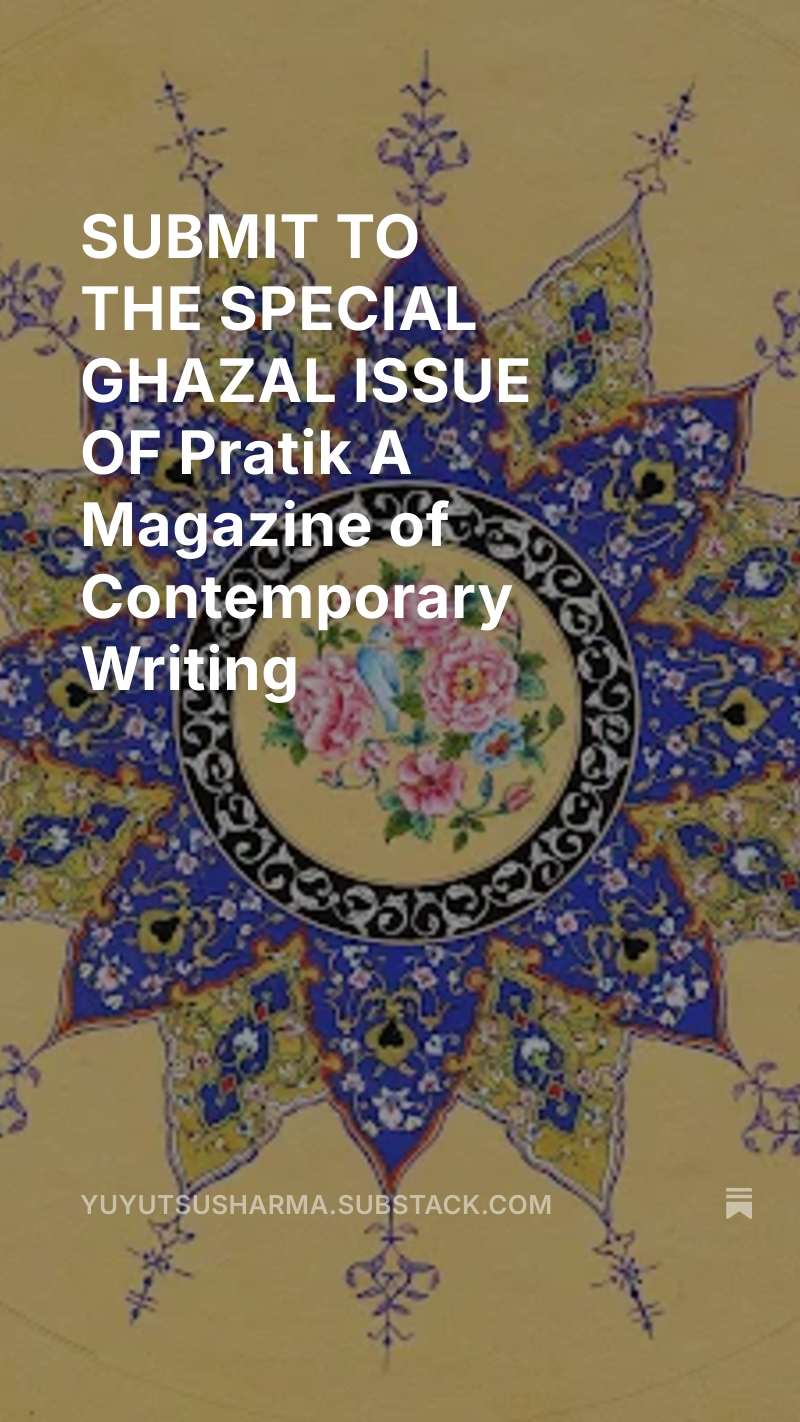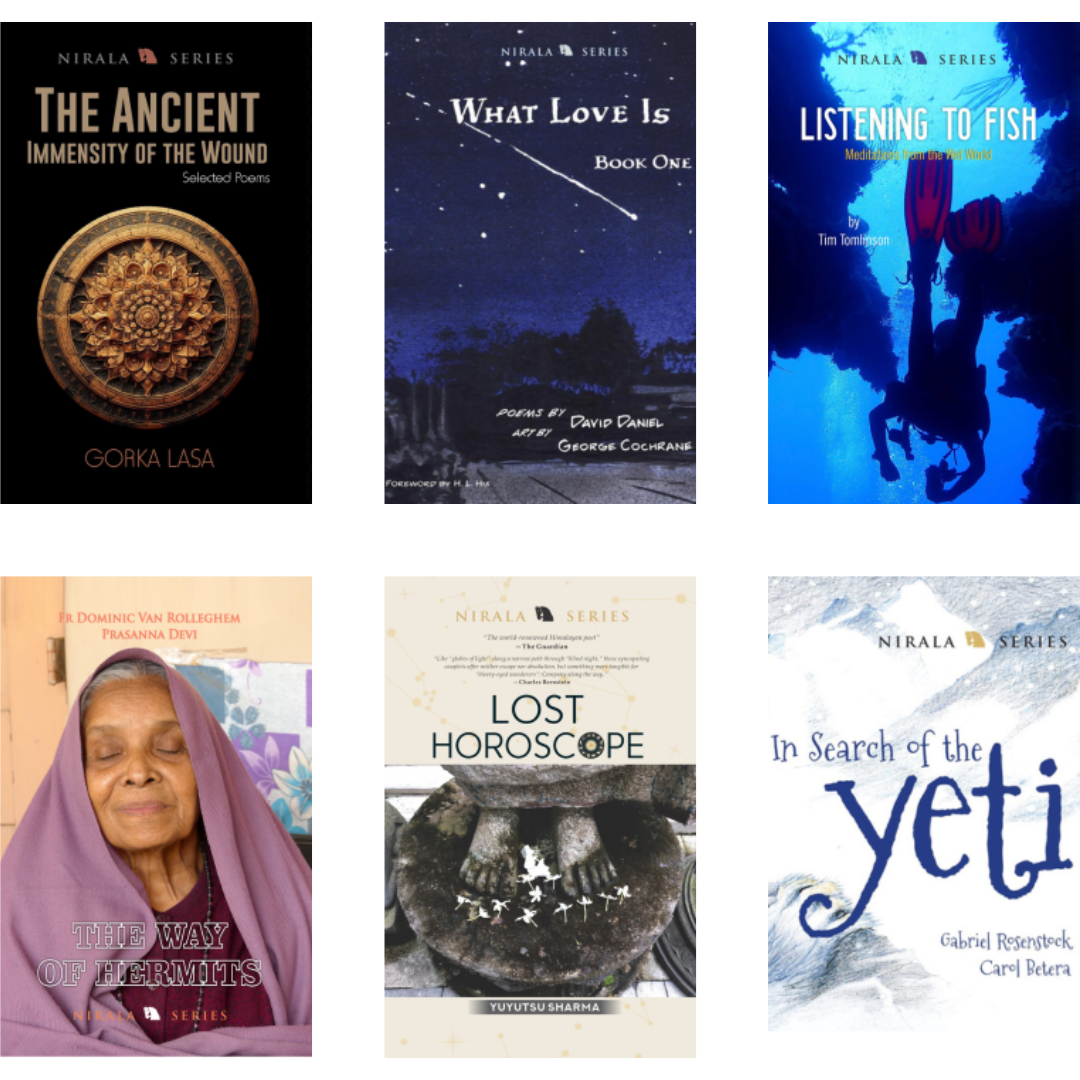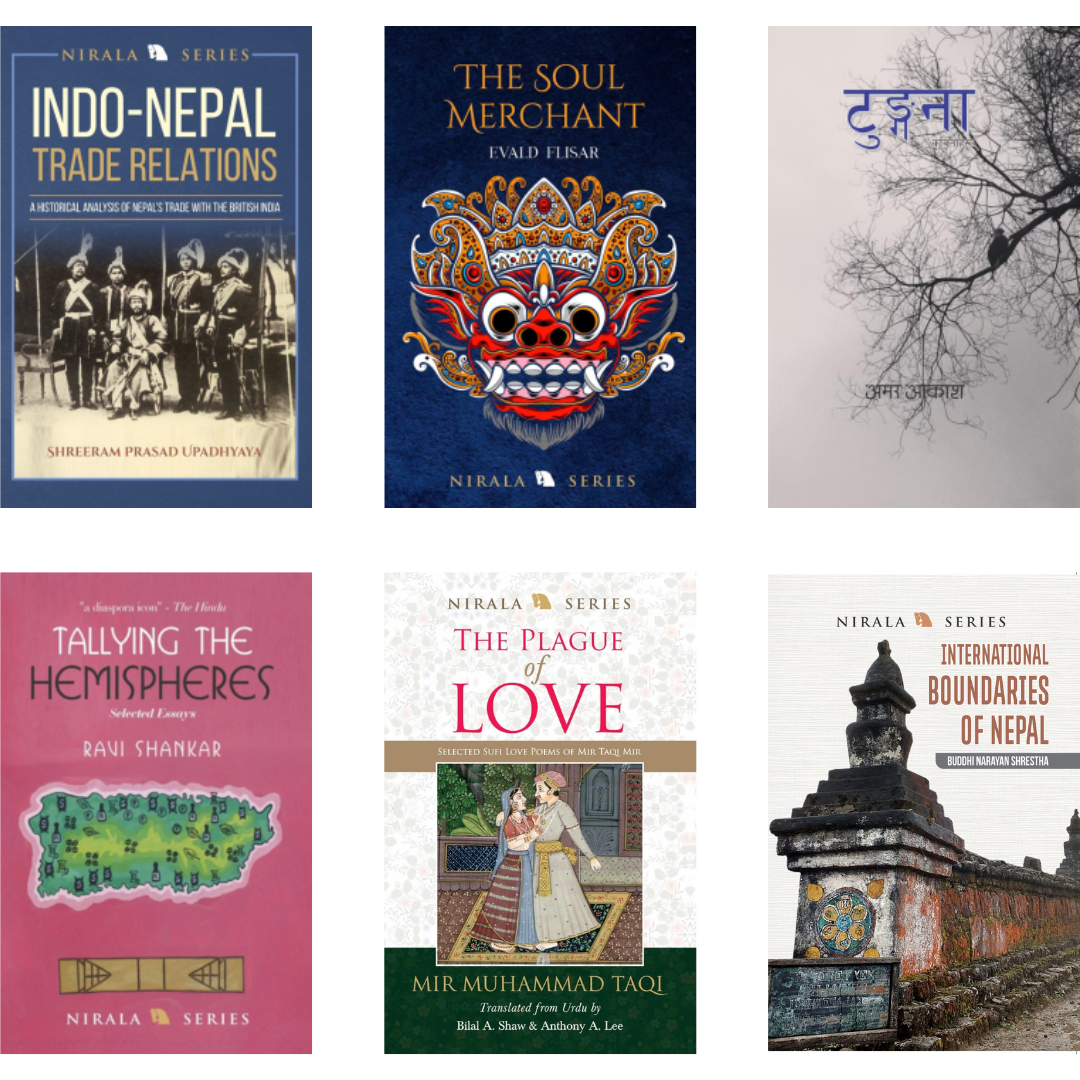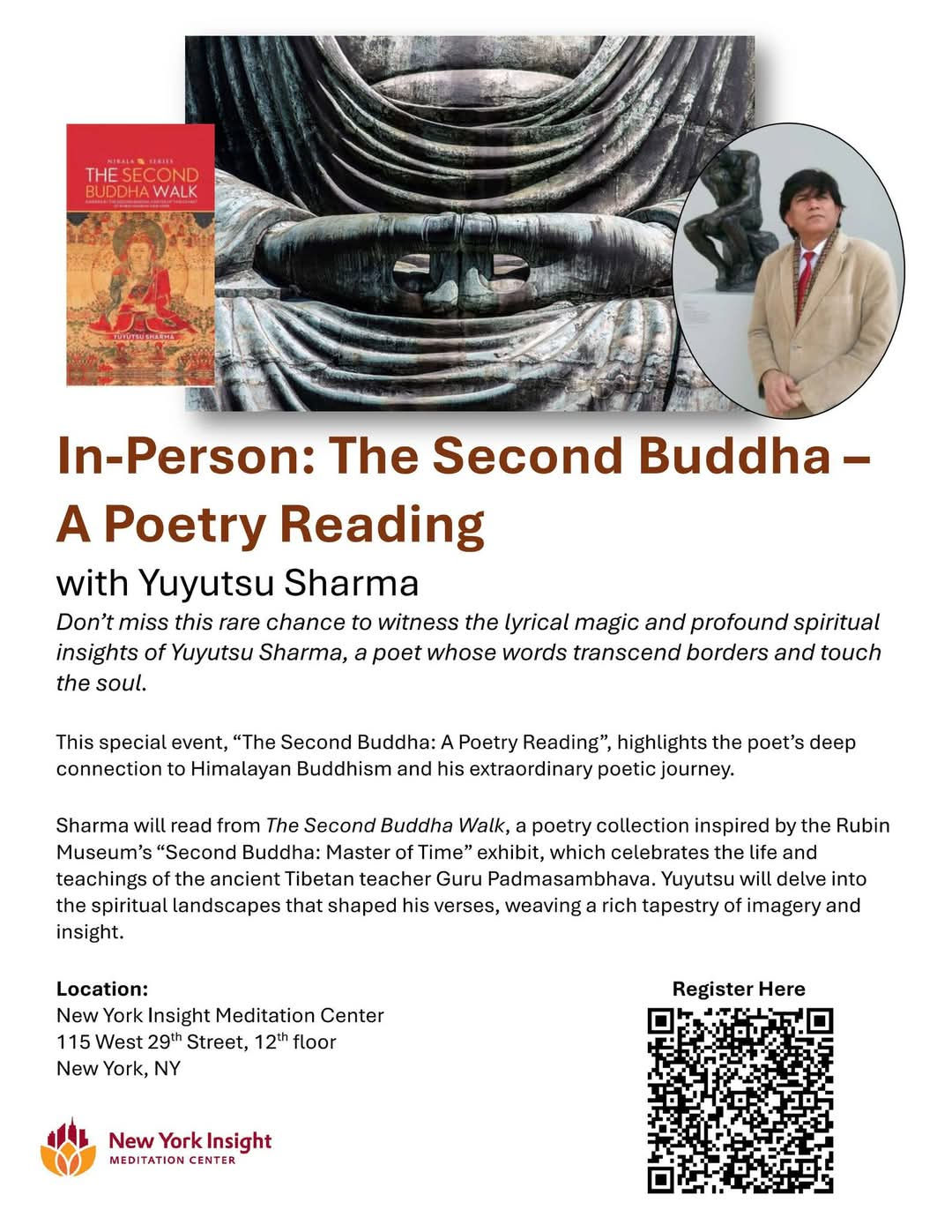
April 8, 2025/
No Comments
Pratik, one of the premier international poetry journals, will feature a special Ghazal Issue in Fall 2025. This landmark issue...



Pratik, one of the premier international poetry journals, will feature a special Ghazal Issue in Fall 2025. This landmark issue...


Sign up for our newsletter to receive special offers and events.
niralapublications@gmail.com

Copyright © 2024 Nirala Publications
Designed & Developed with ♥ By Hemant Bhatta